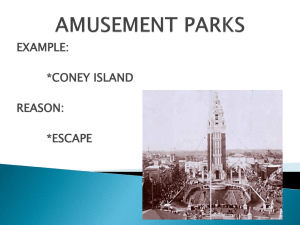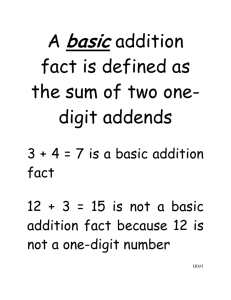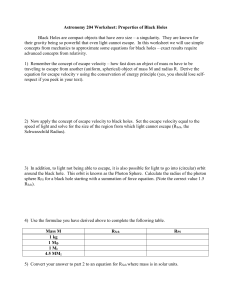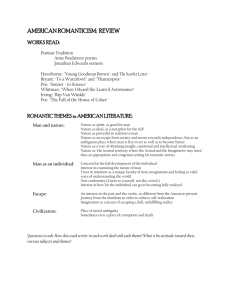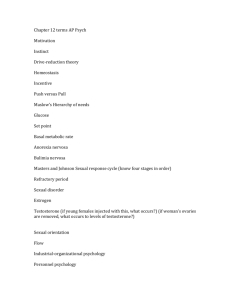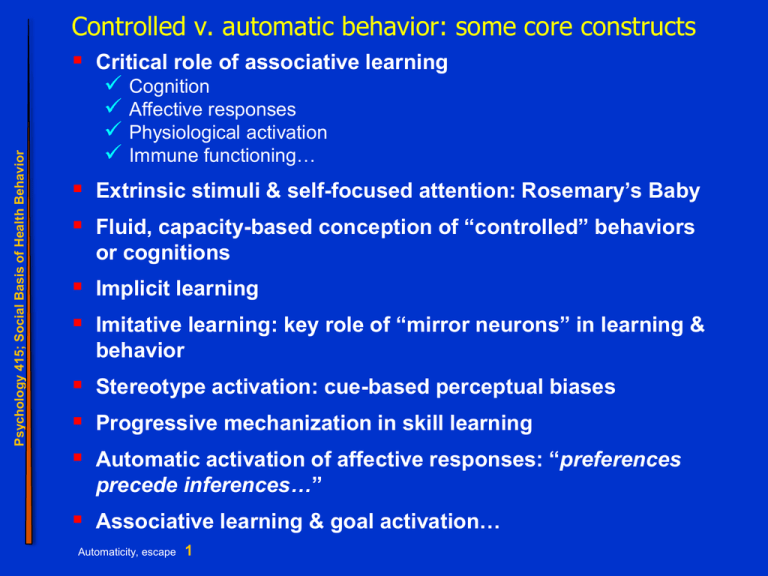
Psychology 415; Social Basis of Health Behavior
Controlled v. automatic behavior: some core constructs
Critical role of associative learning
Cognition
Affective responses
Physiological activation
Immune functioning…
Extrinsic stimuli & self-focused attention: Rosemary’s Baby
Fluid, capacity-based conception of “controlled” behaviors
or cognitions
Implicit learning
Imitative learning: key role of “mirror neurons” in learning &
behavior
Stereotype activation: cue-based perceptual biases
Progressive mechanization in skill learning
Automatic activation of affective responses: “preferences
precede inferences…”
Associative learning & goal activation…
Automaticity, escape
1
Psychology 415; Social Basis of Health Behavior
Bargh; goal activation
Automaticity, escape
2
Sexual Escape
“Honey, you know it don’t count if I was high..."
Psychology 415; Social Basis of Health Behavior
B.B. King, (1971). How Blues Can You Get.
I think [alcohol & drugs] also helps them to forget about [AIDS].
...some of them...are able to keep their wits about that in the
sense of using safe sex, using a condom. But I think others, it
makes it less scary. It makes the experience a lot less
frightening in terms of HIV and AIDS and not having that in the
forefront of their minds when they’re engaging in the activity.
...there are a lot of ... men who would be so-called straight who
under the influence of alcohol or with them knowing that
they’re going to drink so they can go ahead and sleep with
another guy…
Well, I don’t like to admit it, but worrying about HIV when I’m out
meeting guys is a drag. When I drink, I don’t worry so much...
Automaticity, escape
3
Socio-cultural Models of Sexual Risk / Prevention
Psychology 415; Social Basis of Health Behavior
Information dissemination
Targeted v. general populations
Indigenous information / attitude change methods
Community based dissemination / diffusion
Opinion leaders
Settings
Churches, etc.
‘Stages of change’
pre-contemplation
contemplation
action
maintenance
Automaticity, escape
4
Socio-cultural models, cont.
Psychology 415; Social Basis of Health Behavior
Prevention resources
Condom availability
Needle availability
HIV / STI testing
social / personal priorities
cost :: utility
ART treatment
Community Socialization
‘Sexualization’ of gay identification
Implicit v. explicit normative standards
Opportunity & exposure
Drug availability
Risk partner availability
Automaticity, escape
5
Social / cultural models, 3
Psychology 415; Social Basis of Health Behavior
Legal & Policy Interventions
needle exchange
legalized drug use / sex work
Gay marriage
‘Homophobia’ / discrimination
Medical practice / training
Automaticity, escape
6
Person – based models of sexual risk
Simple attitude models:
Psychology 415; Social Basis of Health Behavior
Rational
Operator:
Health beliefs x values "intentions“
Self-efficacy & outcome expectancies
Information & skills
Motivational:
Fear arousal / protection motivation
Self-identity & health motive
Optimism & perceived vulnerability
e.g., reactive effects of ART.
“Dyscontrol”:
Automaticity, escape
7
Chronic or acute substance abuse
Ψ symptoms
Sensation seeking / risk taking
“Personality disorder“ / impulsivity
Childhood sexual abuse / PTSD
sequalae
Risk: Person – based models
Psychology 415; Social Basis of Health Behavior
“Stress”
Social network
Partner / peer pressure
Sexual context
Local norms
Safety availability
Chronic stress
Sexual availability
e.g., internet norms &
availability
Automaticity, escape
8
Vulnerability
Coping skills
Avoidant coping
Self-esteem
Bar orientation
Ambivalence
Stress –vulnerability
Psychology 415; Social Basis of Health Behavior
Internet use and sexual risk among MSM
Automaticity, escape
9
Psychology 415; Social Basis of Health Behavior
Internet & sexual risk, 2
Automaticity, escape
10
Psychology 415; Social Basis of Health Behavior
Stress – vulnerability model of MSM drug use
“Escape”
expectancies
of alcohol /
drug use.
Automaticity, escape
11
Psychology 415; Social Basis of Health Behavior
Cognitive escape models
Vulnerability
Performance standards
Negative affect
Cognitive restraint
Expectancies
Sensation seeking
Cognitive capacity
Releasing Stimuli
Settings
Partner characteristics
Substance use
Affect / internal states
Initial “slip”
Financial pressure (?)
Cognitive disengagement
Concrete action identification
“Automatic” behavior
Automaticity, escape
12
Escape process
Psychology 415; Social Basis of Health Behavior
High performance standards
Negative affect
Escape motive / expectancies
+
Contextual risk inducements
Low level action identification
Automatic behavior
Automaticity, escape
13
Escape, 2
Psychology 415; Social Basis of Health Behavior
High Performance Standards
Externally imposed
Strong norms & intentions
Inescapable / unalterable
Negative affect re: failures
Perceived personal vulnerability + severity
Ought actual | Ideal actual discrepancies
Low self-efficacy for instrumental coping
Low outcome expectancies
“Coping burnout” / fatalism
Fear / shame
Depression / anger
Automaticity, escape
14
Aversive selfawareness
Psychology 415; Social Basis of Health Behavior
Escape, 3
Escape motive / Expectancies
Sexual / alcohol / drug expectancies
Avoidant coping
Cultural / individual support for “escape”
Drug norms & availability
Cultural visibility of / norms for health behavior
Contextual risk inducements
Situational “releasing stimuli”
“Exceptional” times / places / people
Physical constraints on communication, safety, negotiation
Normative environment
Implicit / explicit standards for sex, drugs, communication
“We’re all in” syndrome
Automaticity, escape
15
Escape, 3
Low level action identification
Psychology 415; Social Basis of Health Behavior
Deconstructed Action > larger / abstract meaning
Attentional focus
“Mechanics” > “Meaning”
Reward (gain) sensitivity > punishment (loss) sensitivity
Context sensitivity
“Stimulus bound”
Sensation seeking
Irrational thoughts (?)
Strategic substance use
Impaired abstract information processing
Self-fulfilling expectancies of affective responses
Automaticity, escape
16
Escape, 3
Psychology 415; Social Basis of Health Behavior
Automatic behavior
Core characteristics
Effortless
Unintentional
Autonomous
Uncontrollable
(few attentional demands)
(independent of larger goals)
(fixed “action pattern” or “script”)
(resists conscious change)
“Automatic” maintenance:
Associative learning: stimulus environment + “not think” Rx.
+
Instrumental learning: strong rewards for cognitive avoidance
Death, destruction and despair
(or not…)
Automaticity, escape
17
Psychology 415; Social Basis of Health Behavior
The wages of cognitive escape
Automaticity, escape
18
Psychology 415; Social Basis of Health Behavior
AIM study of drug using MSM
Automaticity, escape
19

